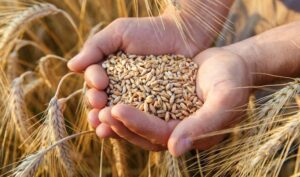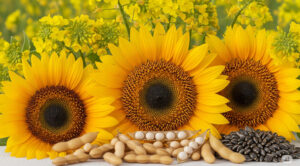
Ukraine may export military goods and services worth several billion dollars as early as 2026 after allowing the export of such products during the war, and is considering introducing a tax on these exports, Reuters reports, citing Deputy Secretary of the National Security and Defense Council (NSDC) of Ukraine David Aloian.
“When asked about this year’s export potential, Aloyan (Deputy Secretary of the NSDC David Aloyan – IF-U) replied: ”Taking into account finished products, spare parts, components, and services that can be provided, this amounts to several billion dollars.” Overall, he said, the potential is “significantly higher” than pre-war exports,” Reuters reported on Friday.
According to Aloyan, in February, the state commission responsible for issuing relevant licenses during wartime approved most of the 40 applications from defense sector manufacturers to export material assets and services.
It is noted that Ukraine stopped exporting weapons after Russia’s invasion in February 2022 and relies heavily on weapons supplies from partners to defend itself against Russian troops. At the same time, Kyiv has invested resources in developing its defense industry, particularly drones and missiles. Leveraging its vast combat experience, Ukraine has experienced a boom in defense technology in recent years.
However, Aloian, who is a member of the commission that authorizes exports, did not exaggerate the significance of the immediate export boom: Ukraine’s own military needs must come first, as Russian troops advance in the east of the country and airstrikes hit towns and villages far from the front line.
According to Aloian, Ukraine’s partners have expressed interest in acquiring its advanced defense technologies. He named Germany, the United Kingdom, the United States, the countries of Northern Europe, three Middle Eastern countries, and at least one Asian country among those most eager to do so. “One of the Middle Eastern countries, which has a long history of arms trade with Ukraine, is exploring opportunities in the field of drones and heavy equipment,” Aloyan said, declining to name the country.
According to Aloyan, priority will be given to exports to countries that are Kyiv’s biggest supporters in the war. Ukraine also seeks to prioritize joint ventures and other forms of cooperation with other countries to attract financial resources, create new supply chains for weapons to the front lines, and gain access to new technologies. “This is more important than simply exporting ready-to-use products,” Aloyan added.
“Ukraine is also considering the possibility of introducing export duties for defense manufacturers,” he said. Although a final decision has not yet been made, he believes that this measure would justify the state’s decision to resume exports, as Kyiv could use the revenue for its own underfunded military needs.
“None of the applications approved by the commission involve the export of ready-to-use weapons,” Aloyan said, “and most are aimed at reimporting weapons to Ukraine for use on the front lines. But some of them are related to equipment for the Ukrainian-American FrankenSAM program, which develops anti-aircraft missile systems by combining Soviet systems belonging to Ukraine with Western missiles.”

Wheat prices in Ukraine will continue to rise until at least mid-March due to reduced supplies from the Black Sea region and limited supply from producers, according to the analytical cooperative “Pusk,” created within the framework of the All-Ukrainian Agrarian Council (VAR).
“Due to logistical constraints, the export volumes of one of Ukraine’s key competitors may fall by almost half. Accordingly, global importers will have to buy about 1–1.5 million tons of wheat from other suppliers, including Ukraine, Romania, and France,” analysts said.
According to experts, there is an imbalance in the domestic market: traders are actively contracting grain, while farmers are holding back sales. This leads to a weekly increase in wheat prices of $1–2 per ton. Weather risks and the threat of winter crop losses due to frost remain an additional factor supporting prices.
Currently, the conditional prices for food wheat (11.5% protein) on a CPT-port basis are $215–220 per ton. At the beginning of March, prices are expected to strengthen to $220–225 per ton.
Further price movements after mid-March will be determined by the condition of winter crops and the overall global market situation, Pusk concluded.

Agroholding Agrotrade exported over 333,000 tons of grains and oilseeds in 2025, according to the company’s press service on Facebook.
According to the report, 187,000 tons were produced in-house, while another 146,000 tons were supplied by third-party producers. The main export destinations remained Turkey, Egypt, Italy, and other countries in the Mediterranean region.
“The 2025 season has once again confirmed that flexibility and reputation are crucial in conditions of increased risk. Despite the difficult security situation, logistical constraints, and downtime, the Agrotrade Group’s export program was carried out without disruption throughout the year. Even when infrastructure comes to a standstill and risks for shipowners increase, our task is to fulfill our commitments. This is what allows us to maintain the trust of our international partners and continue our work,” said Andriy But, director of the agroholding’s foreign economic activity department.
Corn and wheat accounted for the bulk of exports. At the same time, there was a decline in soybean exports due to changes in the regulatory environment and the reorientation of part of the market toward domestic processing.
The agricultural holding also predicts that low export rates from Ukraine in the current season may lead to the formation of significant transitional stocks, which will affect the prices of the future harvest.
The Agrotrade Group of Companies is a vertically integrated holding company covering the entire agro-industrial cycle (production, processing, storage, and trade in agricultural products). It cultivates over 70,000 hectares of land. Its core crops are sunflower, corn, winter wheat, soybeans, and rapeseed. It has its own network of elevators with a one-time storage capacity of 570,000 tons.
The group also produces hybrid seeds of corn, sunflower, barley, and winter wheat. In 2014, a seed plant with a capacity of 20,000 tons of seeds per year was built on the basis of the Kolos seed farm (Kharkiv region).
The founder of Agrotrade is Vsevolod Kozhemyako.

In January this year, Ukraine reduced its exports of processed pig iron in physical terms by 27.1% compared to the same period last year — to 93,795 tons from 128,592 tons.
According to statistics released by the State Customs Service (SCS) on Tuesday, 246,516 tons of pig iron were exported in December.
In January, pig iron exports decreased by 32.5% in monetary terms, to $34.807 million from $51.581 million.
At the same time, exports were mainly to the US (87.25% of shipments in monetary terms), Italy (9.41%), and Poland (2.01%).
This January, the country did not import pig iron, as it did a year ago.
As reported, in 2025, Ukraine increased its exports of cast iron in physical terms by 53.5% compared to the previous year, to 1 million 980.620 thousand tons, and its revenue by 51.9%, to $759.882 million. Exports were mainly to the United States (68.25% of shipments in monetary terms), Italy (20.26%), and Turkey (3.63%).
Over the 12 months of last year, the country imported 39,000 tons worth $78,000 from Germany (51.95%) and Brazil (48.05%), while in January-December 2024, 38 tons of pig iron worth $90,000 were imported.
It was also reported that, starting March 12, 2025, in accordance with President Donald Trump’s decision, the US began imposing a 25% tariff on imports of Ukrainian steel products, except for cast iron.
In 2024, Ukraine reduced its exports of processed cast iron by 3.4% in physical terms compared to 2023, to 1 million 290.622 thousand tons, and by 6.1% in monetary terms, to $500.341 million. Exports were mainly to the US (72.64% of shipments in monetary terms), Turkey (8.03%), and Italy (7.30%). For the whole of 2024, the country imported 38 tons of pig iron worth $90 thousand from Germany, while for the same period in 2023, it imported 154 tons of pig iron worth $156 thousand.

Foreign exchange earnings from rapeseed oil exports from Ukraine in the second half of 2025 increased 2.2 times compared to the same period of the previous season, while rapeseed meal revenues increased 1.4 times, according to Dmytro Kysilevsky, deputy chairman of the Verkhovna Rada Committee on Economic Development, citing data from the Ukroliyaprom association.
“The introduction of a 10% export duty on soybeans and rapeseed has allowed Ukraine to increase the production of oil and meal from these raw materials, as well as to increase exports of processed products,” he wrote on Facebook.
According to the association’s data, in July-December 2025, rapeseed processing into oil increased 1.8 times. In the soybean segment, in September-December 2025, oil production increased by 22.4%, exports by 23.3%, and foreign exchange earnings by 1.5 times.
“The processing of soybeans into oil and meal exceeded its exports by 3.7%,” the parliamentarian emphasized.
Ukroliyaprom predicts that in the 2025-2026 marketing year (MY, July-June), rapeseed processing will reach a record 1.7 million tons (over 50% of the gross harvest), and soybeans — 3.0 million tons (over 60%). This will ensure the production of 720,000 tons of rapeseed oil and 600,000 tons of soybean oil.
Kysilevsky emphasized that the processing model proved its effectiveness in the very first season of the duty law, providing billions of hryvnias in taxes. He also recalled the support programs “Made in Ukraine,” in particular, “5-7-9” loans and 25% compensation for the cost of agricultural machinery.

In January this year, Ukraine reduced ferroalloy exports in physical terms by 10.9 times compared to the same period last year, from 8,331 thousand tons to 765 tons.
According to statistics released by the State Customs Service (SCS) on Tuesday, 2,461 tons of ferroalloys were exported in December 2025.
In monetary terms, ferroalloy exports in January fell 8.1 times to $1.066 million from $8.655 million. The main exports were to Poland (55.91% in monetary terms), Romania (17.92%), and Uzbekistan (14.35%).
In addition, Ukraine imported 3,169 thousand tons of this product last month, a decrease of 40.2% compared to January 2025. In monetary terms, imports fell by 42.3% to $4.870 million. Imports were mainly from Norway (55.03%), India (22.85%), and Kazakhstan (5.48%).
As reported, the Pokrovsky Mining and Processing Plant (PGZK, formerly Ordzhonikidze Mining and Processing Plant) and the Marganetsky Mining and Processing Plant (MGZK, both in Dnipropetrovsk region), which are part of the Privat Group, stopped mining and processing raw manganese ore in late October – early November 2023, while NZF and ZZF stopped smelting ferroalloys. In the summer of 2024, ferroalloy plants resumed production at a minimum level.
Since January 19, 2026, due to problems with electricity supply and high prices for it, NZF has been idle, while ZZF has been operating at a minimum level.
It was also reported that in 2025, ferroalloy plants increased their exports of ferroalloys in physical terms by 21.4% compared to the previous year, to 93,841 thousand tons, and revenues increased by 19%, to $105.441 million. The main exports were to Poland (28.69% of shipments in monetary terms), Turkey (21.62%), and Algeria (21.48%).
In 2025, Ukraine imported 38,434 thousand tons of this product, a decrease of 53.3% compared to 2024. In monetary terms, imports fell by 47.5% to $73.839 million. Imports were mainly from Norway (16.11%), Kazakhstan (15.89%), and France (12.56%).
In 2024, Ukraine reduced its exports of ferroalloys in physical terms by 4.45 times compared to 2023, to 77,316 thousand tons from 344,173 thousand tons. in monetary terms, it decreased by 3.4 times – to $88.631 million from $297.595 million. At the same time, the main exports were to Poland (27.40% of supplies in monetary terms), Turkey (21.53%), and Italy (19.82%).
In addition, in 2024, Ukraine imported 82,259 thousand tons of this product compared to 14,203 thousand tons in 2023 (a 5.8-fold increase). In monetary terms, imports increased 3.3 times, from $42.927 million to $140.752 million. Imports were mainly from Poland (32.71%), Norway (19.55%), and Kazakhstan (13.9%).
The business of ZZF, NZF, Stakhanovskyi ZF (located at NKT), Pokrovskyi and Marganetskyi GZK was organized by PrivatBank prior to the nationalization of the financial institution. The Nikopol Ferroalloy Plant is controlled by the EastOne group, created in the fall of 2007 as a result of the restructuring of the Interpipe group, as well as the Privat group.